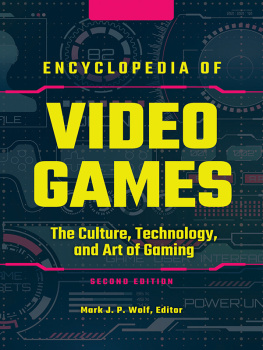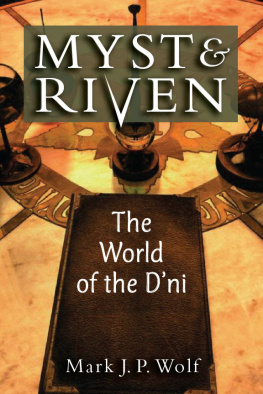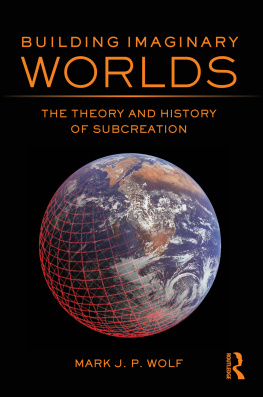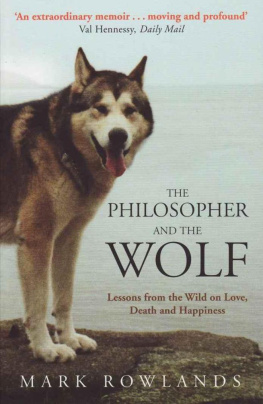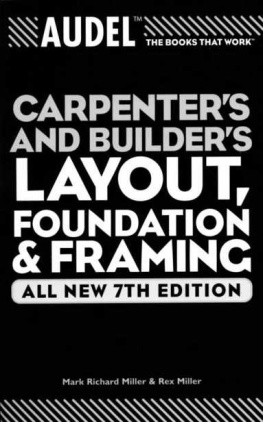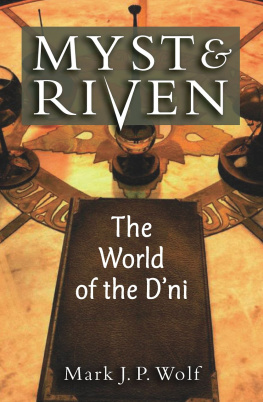
World-Builders on World-Building
With contributions from a distinguished group of world-builders, including academics, writers, and designers, this anthology of essays describes the process and discusses the nature of subcreation and the construction of worlds.
From Oz to MUD, Walden to Rockall, all the worlds featured in this volume share one thing in common: they began in someones imagination, grew from there, and became worlds built with the assistance of multiple authors and a variety of different ideas and media, including designs, imagery, sound, music, stories, and more. The book examines this development, with examples and discussions pertaining to the process and the final product of the building of imaginary worlds, including some transmedial worlds.
World-Builders on World-Building is a fascinating deep dive into the practical problems of world-building as well as its theoretical aspects. It is ideal for students, scholars, and even practitioners interested in media studies, game studies, subcreation studies, franchise studies, transmedia studies, and pop culture.
Mark J. P. Wolf is a Professor in the Communication Department at Concordia University Wisconsin. His 23 books include The Video Game Theory Reader 1 and 2 (2003, 2008), The Video Game Explosion (2007), Myst & Riven: The World of the Dni (2011), Before the Crash: Early Video Game History (2012), Encyclopedia of Video Games (2012), Building Imaginary Worlds (2012), The Routledge Companion to Video Game Studies (2014), LEGO Studies (2014), Video Games Around the World (2015), Revisiting Imaginary Worlds (2016), Video Games FAQ (2017), The World of Mister Rogers Neighborhood (2017), The Routledge Companion to Imaginary Worlds (2017), The Routledge Companion to Media Technology and Obsolescence (2018), which won the SCMS 2020 award for best edited collection.
World-Builders on World-Building
An Exploration of Subcreation
Edited by Mark J. P. Wolf
First published 2020
by Routledge
52 Vanderbilt Avenue, New York, NY 10017
and by Routledge
2 Park Square, Milton Park, Abingdon, Oxon, OX14 4RN
Routledge is an imprint of the Taylor & Francis Group, an informa business
2020 Taylor & Francis
The right of Mark J. P. Wolf to be identified as the author of the editorial material, and of the authors for their individual chapters, has been asserted in accordance with sections 77 and 78 of the Copyright, Designs and Patents Act 1988.
All rights reserved. No part of this book may be reprinted or reproduced or utilised in any form or by any electronic, mechanical, or other means, now known or hereafter invented, including photocopying and recording, or in any information storage or retrieval system, without permission in writing from the publishers.
Trademark notice: Product or corporate names may be trademarks or registered trademarks, and are used only for identification and explanation without intent to infringe.
Library of Congress Cataloging-in-Publication Data
Names: Wolf, Mark J. P., editor.
Title: World-builders on world-building : an exploration of subcreation / edited by Mark J.P. Wolf.
Description: New York, NY : Routledge, 2020. | Includes bibliographical references and index.
Identifiers: LCCN 2020002650 (print) | LCCN 2020002651 (ebook) | ISBN 9780367197254 (hardback) | ISBN 9780429242861 (ebook)
Subjects: LCSH: Creation (Literary, artistic, etc.) | Imaginary societies.
Classification: LCC PN56.C69 W68 2020 (print) | LCC PN56.C69 (ebook) | DDC 809/.922dc23
LC record available at https://lccn.loc.gov/2020002650
LC ebook record available at https://lccn.loc.gov/2020002651
ISBN: 978-0-367-19725-4 (hbk)
ISBN: 978-0-429-24286-1 (ebk)
Typeset in Bembo
by Apex CoVantage, LLC
A. M. D. G.
Contents
by Alex McDowell
Henry Jenkins
Richard A. Bartle
Mark Sebanc
Clara Fernndez-Vara and Matthew Weise
Tracy Fullerton
Mark R. Johnson
Mark J. P. Wolf
Guide
An anthology like this is only possible because of all the people who enjoy writing about, reading about, and building imaginary worlds, and I am grateful to see this interdisciplinary area of study increasing in academia over the years. I would like to thank production designer Alex McDowell for his Foreword and for all the work he has done to advance world-building in cinema. A hearty thanks go to all of the essay contributors, Richard A. Bartle, Clara Fernndez-Vara, Tracy Fullerton, Henry Jenkins, Mark R. Johnson, Mark Sebanc, and Matthew Wiese, for their participation and great essays and for the online conversations we have had regarding imaginary worlds. I am also grateful for the enthusiasm and encouragement of Erica Wetter and Emma Sherriff at Routledge and the anonymous book proposal reviewers for their thoughtful and thorough reviews. Thanks also to my wife, Diane, and my sons, Michael, Christian, and Francis, who put up with me during the time I was working on this book. And, as always, thanks be to God, the Creator of all subcreators.
The Zone, and the Instruments of Building a World
World-Builders on World-Building gathers deep thinkers from the diverse worlds of world-building. Every essay in this book has at its core the intelligence, breadth, and depth of a holistic world. Inside each world is a foundation that is essential but often hidden. When unearthed, it reveals a system that just begins to convey the complexity of the narratives that evolve from it.
Any world worth its salt is unbounded.
To ideate, prototype, develop, and understand the complexity of a world within any practical constraints, we must be able to enter it before it exists. A world changes constantly because we change our viewpoints and vectors constantly. We need to develop the knowledge, depth, and complexity for a multidimensional structure that can support our stories. The intended world is too intricate to understand, yet we cannot understand it unless we begin to build it.
We can know a street corner, a plant, or a machine intimately. We understand their narrative and materials, the function of their moving parts, and how they represent a larger order. Each of these can be epitomized through the trope of a Zone.
A Zone can be sculpted by the intricate collaboration of its creators to become a micro-representation of the holistic world filled with intimate stories that correlate with the larger narratives. A Zone exists in time and space. There is decay and growth, transaction and trade, food consumed and bicycles ridden, crime and misbehavior, governance and infrastructure, water flowing, and the constant movement of people within and woven through its expanse. It has infrastructure, opinion, economy, tools, fuel, smells, weather. It mirrors the macro-system world.
Alongside its uniquely variable characteristics, a Zone is defined by fluidity, the movement through it, and its flow through time. Each Zone becomes a multilayered and orbital representation of a greater world, with much of the depth and detail of the world contained in the smallest possible space. It is a powerful tool.




